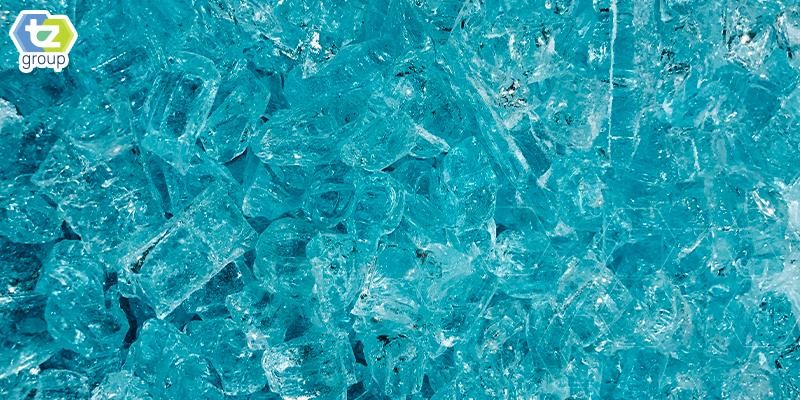Sodium Carbonate Light, also known as Soda Ash Light, stands as a cornerstone in the realm of industrial chemistry, serving as a linchpin in a multitude of sectors. This white, powdery substance, scientifically termed as Na2CO3, is not just a chemical compound but a catalyst that drives numerous industrial processes.
Its unique properties, such as high solubility in water, robust alkalinity, and the ability to act as a flux, make it an invaluable asset across various manufacturing and treatment processes. From glass production to water treatment, and from the textile industry to environmental management, Sodium Carbonate Light’s versatility is unmatched.
In this comprehensive exploration, we delve into the intricate world of Sodium Carbonate Light, revealing its critical role in the industrial ecosystem, its interaction with different materials and processes, and how it enhances efficiency and product quality across industries. Our journey through this chemical marvel will provide insights into its extensive applications, underlying the reasons why it is a sought-after compound in the global industrial landscape.
The Chemistry and Comprehensive Properties
Sodium Carbonate Light, scientifically designated as Na2CO3, is distinguished by its appearance as a white, powdery substance that is devoid of any odor, demonstrating a remarkable ability to dissolve in water and form a transparent, colorless solution.
This characteristic is a testament to its highly soluble nature, which is crucial for its diverse industrial applications. Delving deeper into its chemical makeup, Sodium Carbonate Light boasts a molecular structure that allows it to readily interact with water, facilitating various chemical processes.
Expanding on its physical attributes, Sodium Carbonate Light exhibits a significant melting point, approximately 851°C, showcasing its thermal stability under high temperatures until it reaches a point where it starts to decompose. In aqueous environments, it reveals its potent alkalinity, maintaining a pH level around 12, which is indicative of its strong basic nature. This property is essential for its role in regulating the pH balance in various industrial applications, ensuring optimal conditions for chemical reactions and processes.
Diverse Industrial Applications
· Glass Manufacturing Sphere
In the realm of glass production, Sodium Carbonate Light is indispensable. It serves as a flux, effectively lowering the melting point of the glass mixture. This action is crucial for energy conservation, leading to significant reductions in the operational costs of glass manufacturing. Moreover, it enhances the quality of glass by improving clarity and eliminating impurities, which is vital for producing an array of high-quality glass products destined for automotive, construction, and consumer markets.
· Detergent and Cleaning Industries
Within the detergent sector, Sodium Carbonate Light‘s role is multifaceted. It functions as a pH regulator and a softening agent, elevating the efficacy of detergents in combating dirt and stains. This enhanced cleaning capability is particularly evident in hard water conditions, where it prevents the minerals in the water from interfering with the detergent’s cleaning action. In industrial cleaning scenarios, its application is crucial for maintaining sanitation and hygiene standards in various facilities, including commercial kitchens and manufacturing plants.
· Textile Industry
In textile manufacturing, Sodium Carbonate Light plays a pivotal role in the dyeing and printing processes. It ensures the fixation of dyes to fibers, leading to vibrant, enduring colors, and overall improvement in the quality of textile products. Its ability to regulate pH and remove excess dye and impurities post-dyeing enhances the aesthetic and functional quality of textiles.
· Pulp and Paper Production
The pulp and paper industry benefits significantly from Sodium Carbonate Light. It is utilized for pH adjustment, impurity filtration, and increasing the brightness of paper, thereby contributing to the manufacture of superior quality paper products.
· Wastewater Treatment and Environmental Management
Sodium Carbonate Light is vital in environmental management, especially in wastewater treatment. It neutralizes acidic waste and aids in removing hazardous contaminants, safeguarding water resources and the broader environment.
In-depth Examination of Sodium Carbonate Light’s Role in Key Sectors
· Enhanced Production in the Glass Industry
Sodium Carbonate Light’s contribution to glass manufacturing is profound, as it facilitates the production of various glass types, improving process efficiency and the quality of the final glass products.
· Boost in Cleaning and Detergent Efficacy
Its alkaline nature makes Sodium Carbonate Light an essential ingredient in the formulation of detergents, amplifying their cleaning capacity, particularly in areas with hard water.
· Textile Industry Enhancement
The compound is crucial in the textile sector for dyeing and printing, ensuring colorfastness and eliminating undesirable residues, thus guaranteeing high-quality fabric finishes.
· Advancements in Pulp and Paper Manufacturing
In the pulp and paper industry, Sodium Carbonate Light enhances the pulping process and paper quality, contributing to the production of better, brighter paper.
· Significance in Environmental and Pollution Control
Its use in wastewater treatment and air pollution control underscores its importance in environmental protection, aiding in the efficient purification of water and air, and mitigating industrial pollutants.
· Sodium Carbonate Light in Food and Beverage Production
In the culinary world, it acts as a leavening agent in baking and is critical in the carbonation process of beverages, playing a pivotal role in achieving the desired textural and sensory qualities in food and drink products. Additionally, its utilization in producing various food-grade ingredients underscores its importance in maintaining the quality and stability of food items.
· Role in Air Quality Improvement
Sodium Carbonate Light‘s involvement in reducing sulfur dioxide emissions through flue gas desulfurization processes highlights its crucial role in enhancing air quality and mitigating the environmental impact of industrial emissions.
The Essential Nature of Sodium Carbonate Light
The extensive application of Sodium Carbonate Light across various industries underscores its indispensable role in modern manufacturing and environmental management. Its unique chemical attributes are pivotal in facilitating a range of industrial processes, leading to the creation of high-quality products and the upholding of environmental standards, thus reflecting its unmatched utility in the industrial sphere.
Partner with TZ Group: Secure Your Sodium Carbonate Light Supply
In the dynamic and demanding world of industrial manufacturing and processing, securing a consistent and reliable supply of key compounds like Sodium Carbonate Light is paramount. TZ Group is not just a supplier but a dedicated partner in your industrial journey, offering high-quality Sodium Carbonate Light that meets the stringent standards required for diverse applications.
Our commitment to excellence ensures that you receive products that not only meet your immediate needs but also support your long-term success. With TZ Group, you gain access to a network of expertise and resources designed to provide you with the best chemical solutions that enhance your operational efficiency and product quality. We invite you to experience the difference that comes with partnering with a leader in chemical supply, where your needs are met with precision and professionalism.
Contact TZ Group today to secure your supply of Sodium Carbonate Light and embark on a journey towards optimized industrial processes and enhanced product excellence. Let’s collaborate to achieve your business goals, drive innovation, and lead the way in sustainable and efficient industrial practices.


